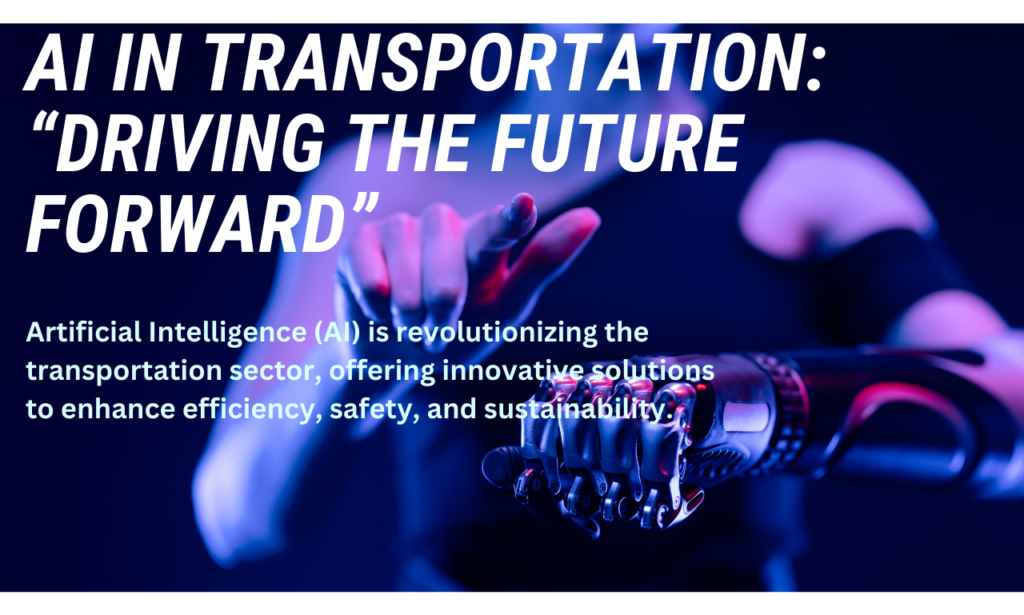AI in Transportation: Driving the Future Forward
Introduction to AI in Transportation
Artificial Intelligence (AI) is revolutionizing the transportation sector, offering innovative solutions to enhance efficiency, safety, and sustainability. As AI technology advances, it promises to transform the way we travel and move goods, creating a smarter and more connected world.

Autonomous Vehicles
AI powers autonomous vehicles, reducing human error and enhancing road safety. Self-driving cars and trucks navigate roads using sensors and machine learning algorithms, offering a glimpse into the future of transportation.
Smart Traffic Management
AI optimizes traffic flow through intelligent traffic management systems. By analyzing real-time data, AI can adjust traffic signals, predict congestion, and suggest alternative routes, reducing travel time and emissions.
Predictive Maintenance
AI predicts maintenance needs for vehicles and infrastructure, preventing breakdowns and reducing downtime. This proactive approach ensures optimal performance and extends the lifespan of transportation assets.
Enhancing Public Transport
AI improves public transportation systems by optimizing routes and schedules. Real-time data analysis helps manage capacity, reduce wait times, and enhance the overall passenger experience.
Reducing Vehicle Emissions
AI helps reduce vehicle emissions by optimizing fuel efficiency and promoting eco-friendly driving practices. AI-powered systems can monitor and adjust driving behavior to minimize environmental impact.
Improving Passenger Experience
AI enhances the passenger experience by providing personalized services and real-time updates. Intelligent assistants and chatbots offer travel information, recommendations, and support, making journeys more pleasant.
Optimizing Freight and Logistics
AI optimizes freight and logistics operations, improving efficiency and reducing costs. AI-driven systems manage inventory, predict demand, and optimize delivery routes, ensuring timely and cost-effective transportation of goods.
Intelligent Navigation Systems
AI-powered navigation systems provide real-time traffic updates and optimal routes. These systems help drivers avoid congestion, save time, and reduce fuel consumption.
Enhancing Road Safety
AI analyzes traffic patterns and predicts potential hazards, enhancing road safety. Advanced driver-assistance systems (ADAS) use AI to prevent accidents and protect passengers.
Supporting Infrastructure Planning
AI aids in infrastructure planning by analyzing data and predicting future needs. This helps urban planners design smarter cities with efficient transportation networks that meet the demands of growing populations.
Reducing Travel Time
AI optimizes travel routes and schedules, reducing travel time and improving overall efficiency. AI-powered apps provide real-time updates and suggestions, helping travelers reach their destinations faster.
Enhancing Ride-Sharing Services
AI improves ride-sharing services by efficiently matching passengers with drivers. AI algorithms optimize routes, reduce wait times, and enhance the overall ride-sharing experience.
Promoting Electric Vehicles
AI supports the adoption of electric vehicles (EVs) by optimizing charging infrastructure and battery management. AI-driven systems manage EV fleets, ensuring efficient charging and reducing range anxiety.



